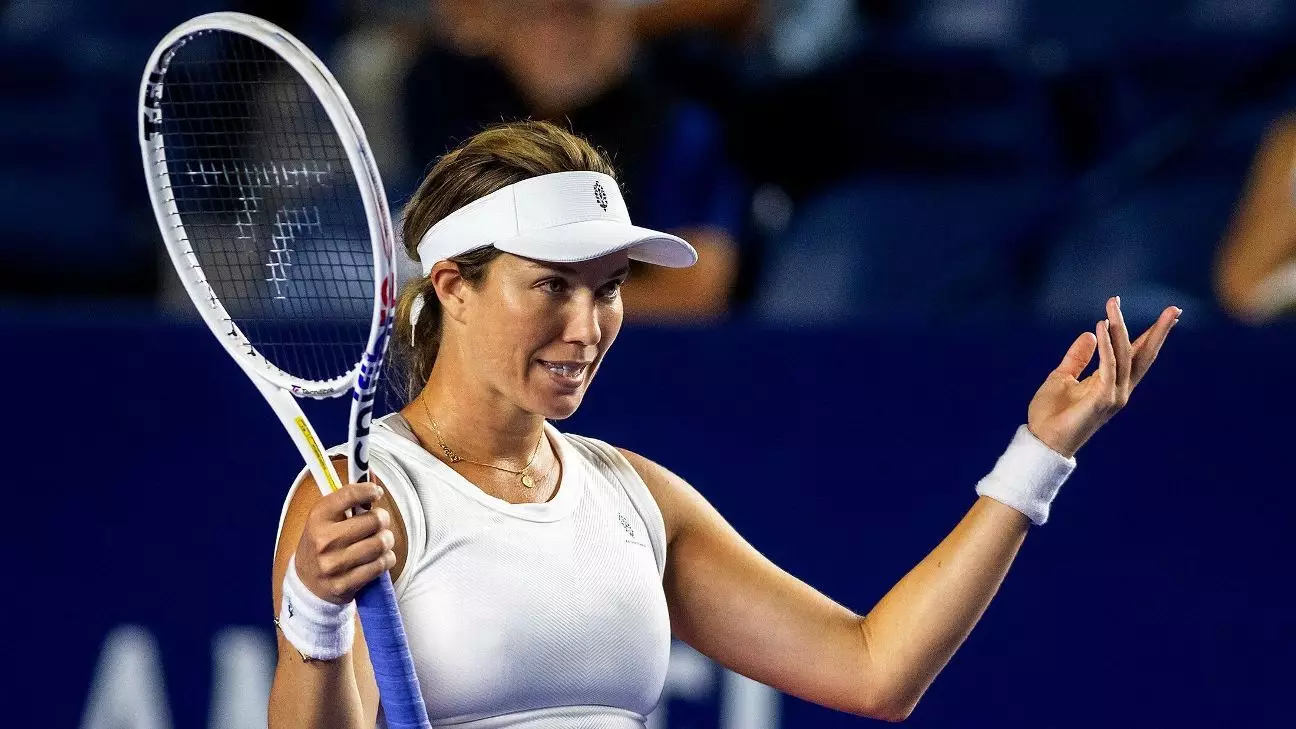Danielle Collins, the world No. 9 tennis player, made headlines recently with her decision to return to the WTA Tour in 2025, a significant shift from her initial announcement of retirement at the end of the 2024 season. This turnaround has sparked conversations surrounding female athletes, health challenges, and the aspirations of starting a family amidst the demanding world of professional sports.
Just nine months ago, Collins appeared resolute in her decision to retire from tennis to focus on starting a family. Her struggle with endometriosis—a condition that affects the uterus and can lead to severe pain and fertility complications—was a deciding factor in her choice. The emotional and physical toll of this illness not only raised concerns about her health but also transformed her aspirations regarding motherhood.
In her recent Instagram announcement, Collins candidly shared her ongoing health challenges and the consultations with specialists she has pursued to devise an appropriate plan for achieving her goals. This journey illuminates the often-hidden struggles that female athletes face, balancing high-performance expectations with personal and health-related challenges. Collins’s reflections highlight the resilience required to navigate such complex landscapes.
Collins’s career has not been short of impressive milestones, with her winning significant tournaments this year, such as the Miami Open and Charleston. These achievements reflect her tenacity and the skillset that has brought her to the top echelons of professional tennis. Despite her earlier declaration of retirement, Collins’s resurgence on the court proved that she still possessed the ability to perform at an elite level.
During her participation in the Australian Open in January, Collins suffered a tough three-set loss against top-seed Iga Swiatek, showcasing the level of competition at the pinnacle of women’s tennis. However, even as her competitive spirit thrived, the looming questions about her future began to overshadow her triumphs. The pressure of performing while contemplating a significant life change can undoubtedly weigh heavily on an athlete, especially one who is grappling with health issues as complex as endometriosis.
Empowerment Through Decision-Making
Collins’s assertion that she wanted to retire “on her own terms” underscores not only her strength but also a broader narrative applicable to female athletes: the importance of ownership over one’s own career. Too often, the sports world sees women athletes being pushed out of the sphere by injuries or declining performance, rather than making a proactive choice to leave. Collins’ determination to dictate her own narrative is empowering, not just for her but for future athletes who aspire to balance competitive sports with personal aspirations.
Interestingly, her decision to forego a customary farewell ceremony at the US Open reveals her desire to keep her journey private. In a culture that often glorifies public displays of recognition, Collins chose a path of modesty, indicating that her journey was for herself rather than for an audience. This choice highlights an athlete’s right to privacy, even when celebrated on a global platform.
Looking ahead, Collins expresses both excitement and cautious optimism for her return to the tour in 2025. By participating in a mixed-gender tournament at the start of the year, she plans to build on her previous successes and continue addressing her personal health needs. The statement that “there are no guarantees in life” serves as a poignant reminder of the unpredictable nature of both sports and personal health.
Collins’s commitment to continue pursuing her dreams while also acknowledging the struggles related to fertility represents a significant journey many women navigate. With her return, she not only aims to solidify her legacy within tennis but also hopes to inspire conversations around health and personal aspirations in the world of women’s sports.
Danielle Collins’s return to the WTA Tour symbolizes much more than a comeback; it reflects the intricate interplay between professional ambition, health considerations, and personal goals. This journey encapsulates the struggles and triumphs that define female athletes today, reshaping the narrative around athletic retirement and family planning. As Collins gears up for her return, the tennis community will undoubtedly keep a close eye on her journey, supporting her as she balances the complexities of sport and life.

